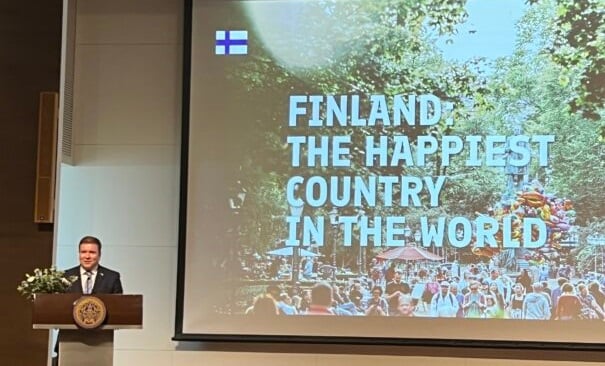The entire Aloha State is experiencing an exodus and massive cancellations due to the deadly wildfires in Lahaina, West Maui.
Obviously, no one wants tourists on beaches, where first responders and locals work around the clock to help neighbors and search for victims in the deadliest wildfires in the United States. This is obviously not only disrepectful, but offensive.
However, the epic center is concentrated in West Maui only. Hotels in Kihei, Wailea, or even Hana operate normally on Maui.
Tourists in Waikiki, the rest of Oahu, Kauai, Hawaii Island, Lanai, or Molokai only hear about the tragedy unfolding in Lahaina in the news, but life goes on.
Tourism is the biggest economy in the State of Hawaii, along with the military. In times of record homelessness, and coming out of 2 1/2 years of a pandemic, tourism is needed and was finally booming again until August 8 changed this overnight.
Many new air routes were established, with almost every seat booked for the last few weeks.
International visitors from Japan, Korea, Canada, New Zealand, and Australia started coming back in good numbers. Also international flights increased frequencies, and new routes emerged.
WRONG: Visitors, Stay Away from Hawaii
A daily press release issued by the Hawaii Tourism Authority a week ago and repeated daily, circulated on major news wires, together with Governor Green echoing visitors to leave and cancel if they can, did the job.
National and international news outlets and their reporters on Maui can spread such news effectively in minutes.
A second avalenge of bad news was now attacking a functioning and busy travel and tourism season in Hawaii. This appeal was so successful that many in the travel business don’t yet know what hit them.
This appeal is resulting in mass cancellations and visitors trying to get on the next plane home. Industry leaders in Hawaii did not want to go against it and kept quiet.
The Hawaiian Tourism Authority has a mandate to promote tourism, but is doing exactly the opposite, and also still mostly concerned with cultural issues.
In addition, celebrities echoed the Hawaii Tourism Authority’s stay-away appeal and influenced many visitors to leave and those that booked a vacation to Hawaii to look for other sand and beach destinations.
Some concerned residents tried to help in their own way and shamed visitors for even contemplating booking a vacation to Hawaii.
While this is all unfolding and is wiping out Hawaii’s main economy, Governor Green all the sudden understood. He clarified and reversed his earlier press release.
CORRECT: Visitors, please travel to Hawaii
He now encouraged visitors to no longer cancel and to come back. This all sends a very confusing message not only to potential tourists but also to airlines, tour operators, and stakeholders in Hawaii and anywhere in the world.
Perhaps Hawaii needs a little advice from outside the box. Hawaii based World Tourism Network with members in 133 countries asked some of its known executives for their feedback.
International Tourism Expert, WTN Hero and outgoing CEO of the Barbados Tourism Board, Dr. Jens Thraetenhard, told eTurboNews:
I think the most important aspect is safety for residents and tourists.
If the destination remains open for tourism and is safe, it should still be able to offer a good experience.
If that is possible, I think tourism should be promoted, as it can help the local community get much-needed cash to survive and rebuild. Stopping tourism creates a burden on businesses reliant on it.
So in my opinion, politicians need to be able to justify why they are discouraging tourists from visiting.
Alain St. Ange, former Tourism Minister of Seychelles, and VP Goverment Relations World Tourism Network said:
Alain St. Ange, World Tourism Network VP, and former minister of Tourism for the Indian Ocean Island Nation, Seychelles, said.
Like the Seychelles, Hawaii has a special place in global tourism.
The area where the disaster struck on Maui Island should be cut off from public access. This is seen as good practice and a showing of respect.
But should Hawaii as a whole now become a no-visit zone and, in so doing, impose more hardship and suffering on the population?
Of course not.
This situation reminds me of the struggle many of us in Africa face when a disaster strikes a region, a village, or a town. For example, embola fever struck the Democratic Republic of DR Congo, and many countries bordering the Congo, even hundreds of miles away in countries such as Uganda, Rwanda, Tanzania, or Kenya, had to suffer when tourists were no longer arriving.
This is a punishment that is not warranted, creating even bigger issues, especially for the SMEs in the travel and tourism industries.
We all understand that a disaster is always a great sacrifice for those living in an affected area and is unfortunately unavoidable. The rest of the country, however, deserves to be allowed to live.
Anti Tourism Sentiments
It’s also understandable that in Maui, many locals facing this disaster have anti-tourism sentiments. Sometimes such sentiments that started during the COVID lockdowns increase.
Some locals went on social media discouraging tourists to visit Hawaii and even shamed visitors in public for traveling to the Aloha State.
Celebrities went online encouraging visitors to stay away from all of the Hawaiian islands.
Debbie Flynn, Executive Director PR Agency Finn Partners London told eTurboNews:
I think people react in different ways when faced with such tragedy, don’t they?
I guess the nearest recent comparison is Rhodes. Greece is one of our clients.
This weekend, we have a group of influencers going out there to show how so much of Rhodes is still fine and open.
What I do know is that as people heal and when they do start welcoming tourists back, Consumers will generally want to go and visit a destination to help it rebuild, so they just need time and all this anti-tourism sentiment will be forgotten.
FINN Partners Honolulu office also represents the Hawaii Tourism Authority
Tourism Must Continue
A World Tourism Network spokesperson said:
It’s important for people in power to think twice before they make such public statements. One hasty comment by a governor takes a few seconds to say but may take years to repair.
Tourism is actually more important in times of crisis. Tourism secures not only jobs but contribute to a feeling of normalcy and self-respect.
The last thing a tourism destination wants is to discourage visitors and its stakeholders such as airlines, hotels, and sightseeing operators.
YES, it’s a great time to visit Hawaii, you will be welcomed with Open Arms
(West Maui excluded)























